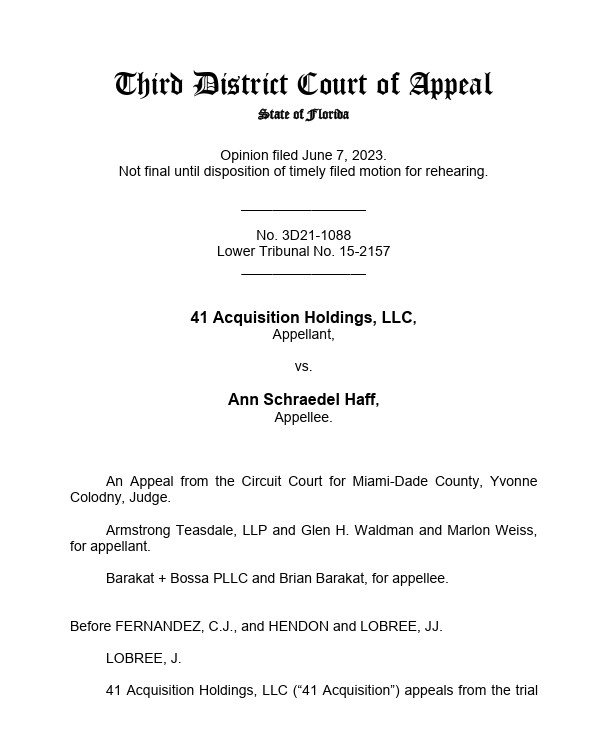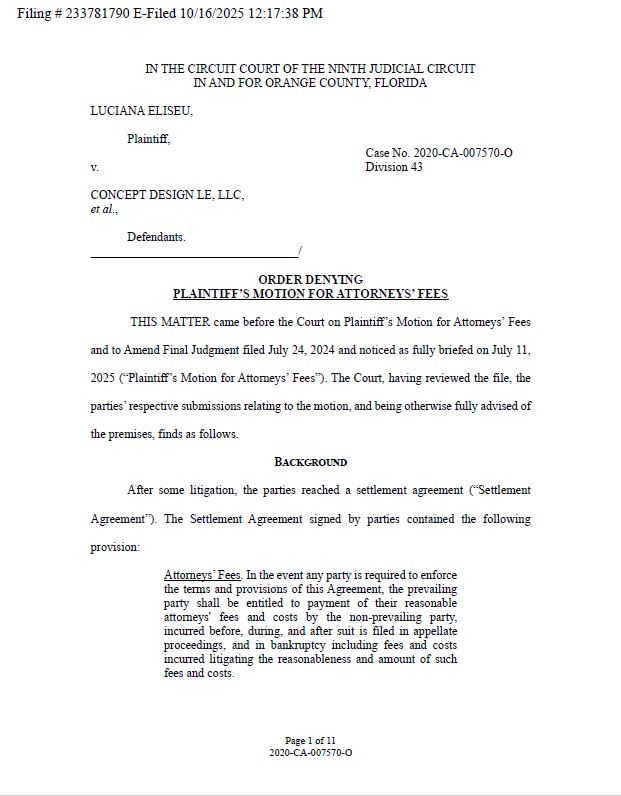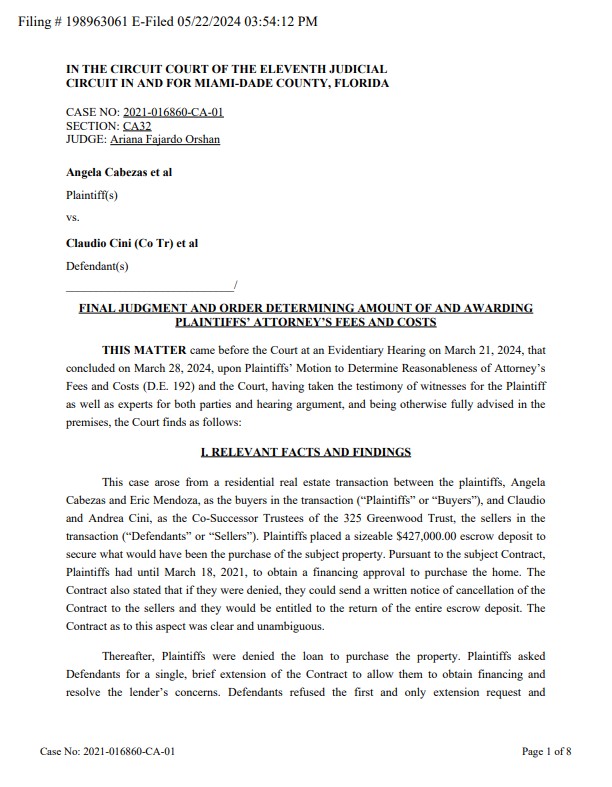Written by: Brian Barakat, Esq.
Few areas of Florida law are as essential—and as unforgiving—as the recovery of attorney’s fees. At Barakat + Bossa, our business trial attorneys have spent years mastering the intricate statutes and case law that govern fee-shifting provisions. That expertise was recently affirmed in our victory last month in the Luciana Eliseu v. Concept Design LE, LLC case and further validated by prior wins in this nuanced area of litigation.
The American Rule and the Perils of Drafting
Florida follows the American Rule, which generally requires each party to bear its own attorney’s fees, regardless of the outcome. Exceptions arise only when a statute or contract explicitly provides for fee recovery. But here’s the catch: any fee-shifting provision is considered in derogation of the common law and must be strictly construed. That means the language must be clear, specific, and unambiguous—or it won’t be enforceable.
The Danger of Ambiguous Drafting
Our experience in the 2023 appellate case, 41 Acquisition Holdings, LLC v. Ann Schraedel Haff, serves as a stark reminder of this strict construction principle. In that case, the settlement agreement included a confusing attorney’s fee provision that was so poorly worded, it was deemed to be “missing a verb” and commingled several objectives. The trial court initially granted a motion for fees but later reversed its ruling, and the Third District Court of Appeal affirmed that denial, holding that the provision did not unambiguously state the parties’ intention that the prevailing party recover attorney’s fees on the matter at issue. The court couldn’t determine the parties’ intention without rewriting the agreement, which it is powerless to do.
The takeaway is simple: Attorneys must be painstakingly careful when drafting fee clauses. Ambiguity, however slight, can completely negate the right to recovery. A fee-shifting provision must clearly identify the matter in which the fees are recoverable.

The Danger of Untimely Litigation
Even a well-drafted fee clause can be rendered useless by procedural missteps. Florida Rule of Civil Procedure 1.525 sets a strict deadline: a motion for attorney’s fees must be served within 30 days of the final judgment.
In Concept Design, the plaintiff prevailed and obtained a Final Judgment on January 26, 2024. However, she failed to file her motion for fees by the February 26 deadline, instead waiting until July 24. The court denied the motion, reaffirming the “bright line” rule of Rule 1.525. Arguments for exceptions—including a prior order reserving jurisdiction—were rejected.
Takeaway is equally simple: Even with a bulletproof fee clause, missing the Rule 1.525 deadline means forfeiting your right to a recovery.

The Reward of Precision: Expanding the Scope of Recovery
Strict construction can limit recovery — but precise drafting can also unlock broader rights. In Anglea Cabezas and Eric Mendoza v. Claudio Cini, et. al., our clients, the prevailing buyers, sought and won an expansive fee award, including:
- Pre-litigation fees necessitated by the defendants’ unreasonable conduct.
- Mediation preparation fees, which were compensable because the contract excluded only fees for the “conduct of the mediation,” not preparation.
- Fees on fees—the time spent litigating the amount of the fee award, typically disallowed under Florida statutes.
The Power of “Any Litigation”
The contract’s fee provision in the Cabezas matter was a masterful example of broad drafting, stating:
“In any litigation permitted by this Contract, the prevailing party shall be entitled to recover from the non-prevailing party costs and fees, including reasonable attorney’s fees, incurred in conducting the litigation.”
Citing the Waverly line of cases, the court found this language broad enough to include “fees on fees.” Because litigating the award was “necessarily included within the definition of ‘any litigation,’” we secured compensation for that work.
The court also found that the defendants’ refusal to return the escrow deposit—without any supportable grounds—necessitated pre-suit work, making those fees recoverable. The result? A total award of $301,387.76.

Precision Requires the Right Legal Team
The outcome of these cases is a testament to the fact that while fees are not an automatic right in Florida, securing them is a matter of precise drafting, vigilant procedure, and expert litigation. At Barakat + Bossa, we specialize in understanding the razor-thin line that separates recovery from forfeiture under the American Rule.
I want to recognize the incredible talent on my team:
- Camila Guzman, my paralegal, was instrumental on the Concept Design case, and her attention to detail on the Haff matter was invaluable.
- Attorney Valeria Agnelucci made a significant contribution to the winning Haff appeal.
- Attorneys Josh Rascoe and Candice Hawkins were major contributors whose exceptional work resulted in the expansive fee award in the Cabezas case.
If you have questions about drafting or litigating attorney’s fee provisions, Barakat + Bossa stands ready to assist you.
Brian Barakat is a Board-Certified Business Litigator and Co-Founder of Barakat + Bossa PLLC. With a background in prosecuting complex financial fraud and a career built on high-stakes commercial litigation, he brings strategic insight and courtroom experience to every matter. His practice focuses on resolving business disputes efficiently and effectively, with particular emphasis on fiduciary litigation, restrictive covenants, and fee recovery. He may be reached at barakat@b2b.legal.
This post is intended to provide general information regarding the recovery of attorneys’ fees in Florida and does not constitute specific legal advice. For guidance tailored to your situation, please contact our team directly.




